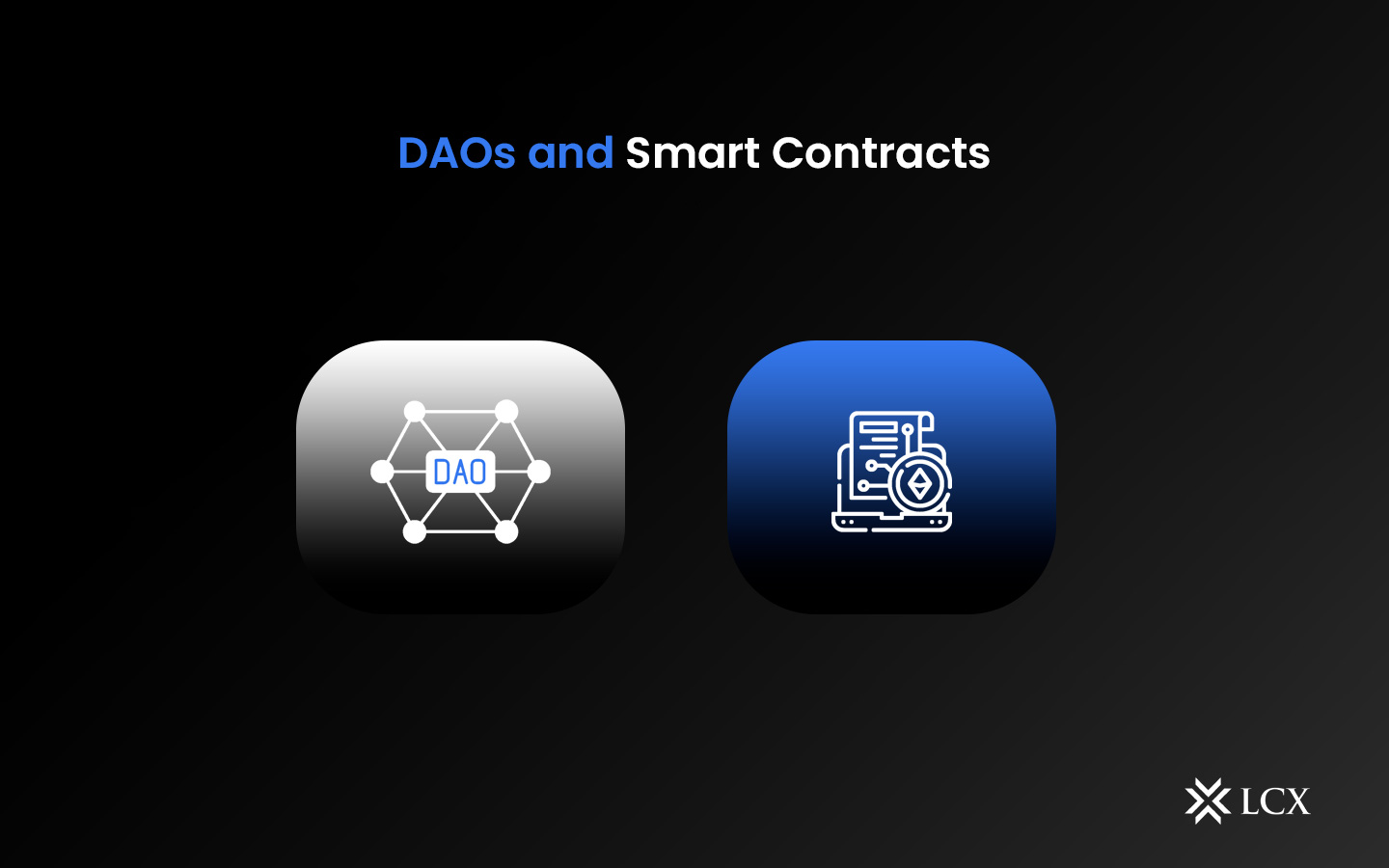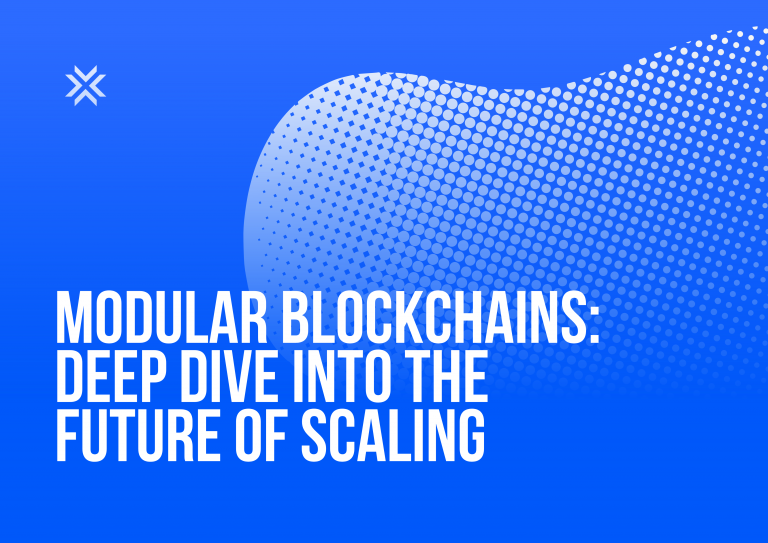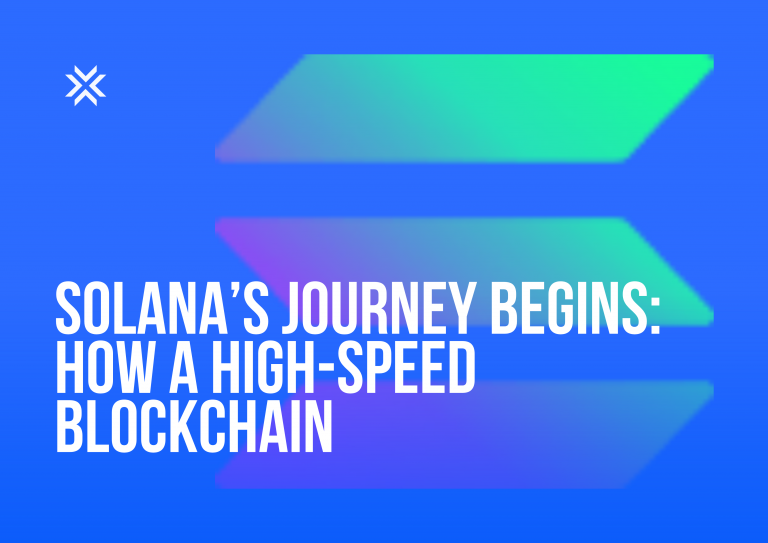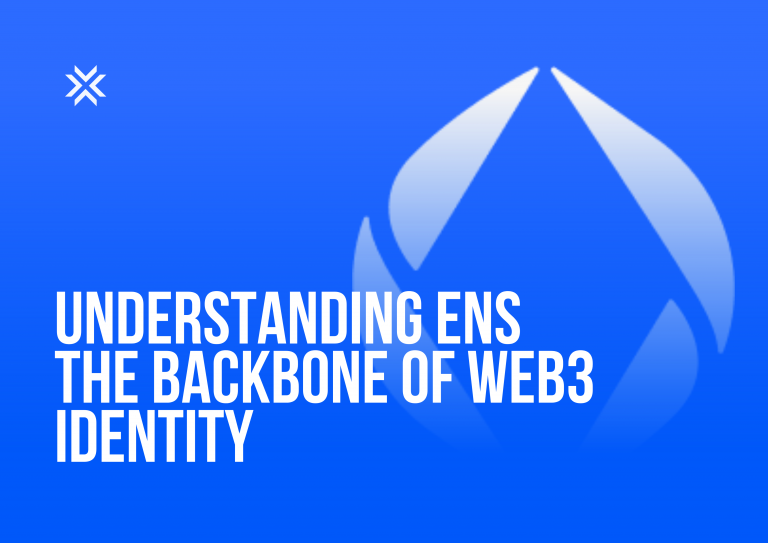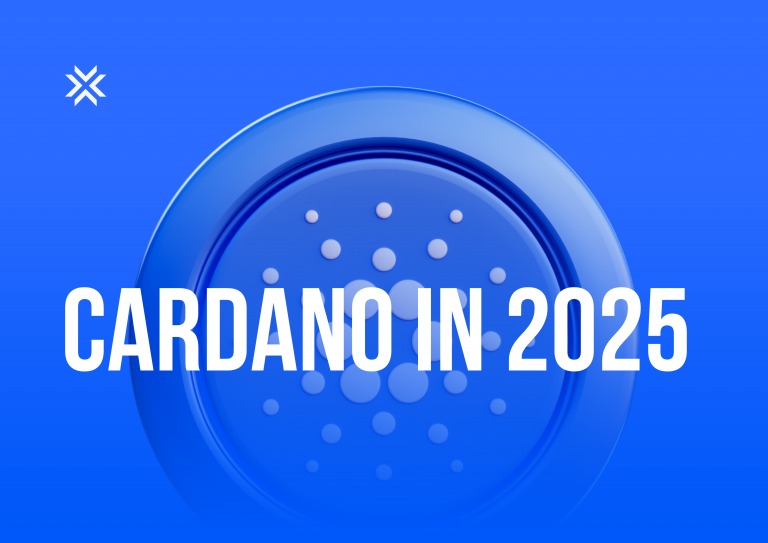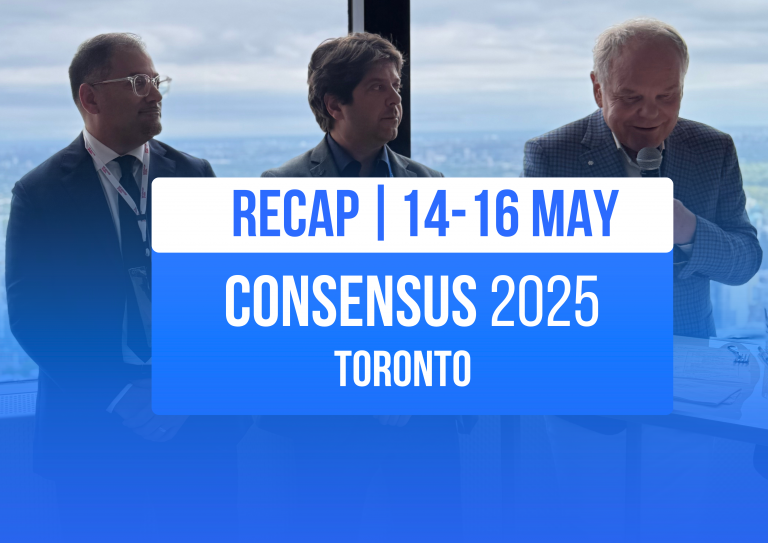The realm of blockchain technology is witnessing the rise of decentralized finance (DeFi) and the advent of revolutionary blockchain-based use cases. Among the many innovations in this space, two key concepts have emerged as game-changers: Decentralized Autonomous Organizations (DAOs) and smart contracts. Individually, both DAOs and smart contracts have profoundly impacted various industries. However, the combination of these two technologies has the potential to reshape the landscape of business operations. This article delves into the synergistic relationship between DAOs and smart contracts and explores how they transform traditional organizational structures and enable novel business models.
What are DAOs?
DAOs are internet-native organizations with decentralized management and autonomous decision-making due to their programmed logic. They are hosted on blockchain platforms, allowing for decentralized leadership and administration. A DAO’s governance and regulations are determined by the decentralized community associated with the project. A DAO is structured around a mission or mandate, as is the case with all organizations.
The business or operational logic of a DAO is embedded and updated by the community through governance mechanisms. The DAO is intended to serve as a layer of management that determines programmatically how to conduct actual business or charitable operations.
What are Smart Contracts?
Smart contracts are one of blockchain technology’s most potent features. A smart contract is a digital contract in which the parameters of the agreement between parties are encoded in computer code. A smart contract can also be programmed to automatically execute when a predetermined set of conditions are met. On decentralized and distributed blockchain networks, smart contracts exist. As a result of the interoperable nature of blockchains, users can also use smart contracts to conduct transactions across platforms.
Several organizations are attempting to develop smart contracts that will hold up in a court of law. The solutions will likely take the form of smart contract interfaces, where the code in a smart contract simultaneously generates a document defining the provisions of the contract in plain English.
When executed, smart contracts can be programmed to activate other smart contracts or generate new events. Smart contracts can also contain assets, non-fungible securities, and cryptocurrencies. These assets can be distributed upon execution if a set of conditions specified in the contract’s code are met.
What exactly is an Oracle?
A blockchain oracle is a reputable third-party service that provides smart contracts with authenticated external data sources from the physical world via an API. Oracles connect intelligent contracts to external events. Frequently, smart contracts must be triggered by an external event. Using oracles, a smart contract can receive data signifying the outcome of an event in the physical world or on another digital platform.
Oracles can be constructed to supply smart contracts with a vast array of data. For instance, an oracle could provide real-world meteorological data, event outcomes, legal case outcomes, financial statistics, economic data, interest rates, market data, vehicle or machine performance data, etc. An oracle could also provide information regarding the actions of a different DAO. What is important to remember about oracles is that the majority of smart contracts are designed to execute when a predefined condition is met, and oracles are the data sources that can provide authenticated information about these conditions.
Some smart contracts can include multiple oracles to ensure that multiple sources or oracles validate the same outcome, as it has been debated that oracles could be compromised in the event of larger wagers. Multiple oracles can simultaneously feed data into a DAO, and multiple oracles can be configured for various events and purposes.
DAOs and Smart Contracts
DAOs are governed by Smart Contracts. The fundamental pillars of a DAO are its smart contracts. Smart contracts define the DAO’s regulations as well as the group’s use of its treasury. The smart contracts that regulate a DAO are programmed with its rules and logic. If a user attempts to perform an action that is not covered by the rules and logic in the code, the action will fail.
Smart contracts can be programmed to implement some or all of their logic based on a trigger event, such as the price and availability of a desired NFT. A smart contract can also be activated when an external (real-world) signal is generated by sensors or human input and then sent to the DAO’s oracle. Recent advancements in IoT and sensor technology have enabled smart contracts to receive more efficient and accurate data in real-time.
Oracles are used to feed data into a DAO. The data is then processed through smart contracts employing the DAO’s logic and business principles, after which instructions are dispatched for execution. In a DAO, data flows in, while decisions and instructions flow out.
Conclusion
DAOs offer a novel distributed, transparent, and automated organizational management system. They offer their communities collective risk and reward based on programmatically executed principles.
Smart contracts are a significant component of blockchain technology. Smart contracts are digital agreements in which the actions, logic, and provisions of the agreement between users are encoded in computer code. Blockchains also assure the auditability of contracts in real-time.
Smart contracts make it possible for decentralized, autonomous organizations to exist. Without smart contracts capturing and executing the code and logic that will regulate all of a DAO’s activities and actions, DAOs cannot provide the breadth of functionality and flexibility that they do.
